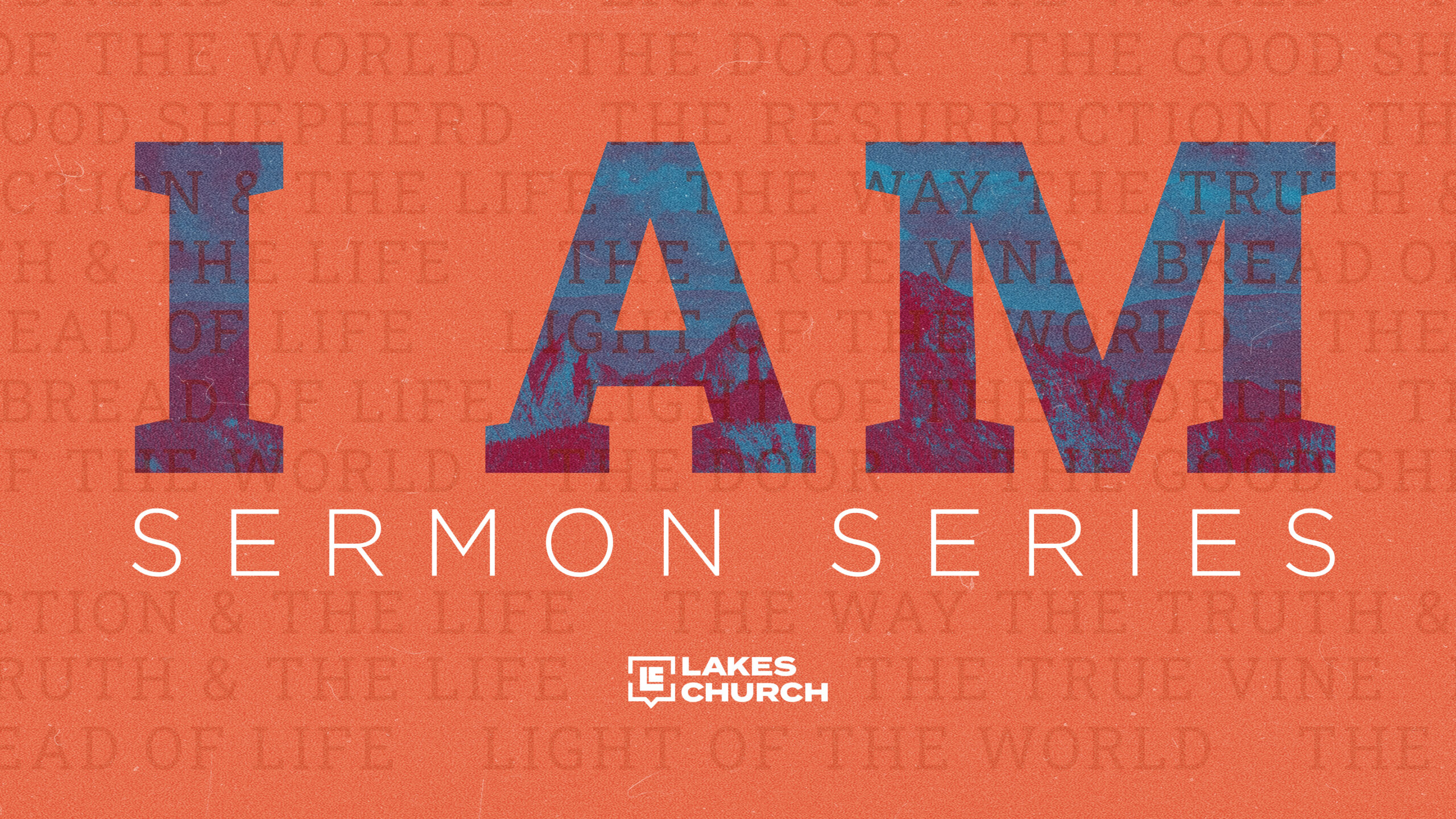Lessons from the Raising of Lazarus//From July 7th Sermon
Have you ever faced a tragedy that seemed insurmountable? A moment where the weight of the world crashed down upon you, leaving you gasping for air and wondering how you’d ever move forward? We’ve all been there. Some of us are there right now. In those moments, it’s easy to feel like our pain is unparalleled, that no one could possibly understand the depth of our sorrow.
But here’s the truth: while not all tragedies are equal (let’s be honest, a teenager’s breakup doesn’t quite compare to more severe losses), there is one universal tragedy that touches us all – death. It’s the ultimate equalizer, the shared human experience that none of us can escape. And it’s precisely here, in the face of death, that we find one of the most powerful stories in the Bible – the raising of Lazarus in John 11.
It’s in this chapter we see two Christological movements of a sign and a statement tethered together. This account isn’t just a miraculous tale; it’s a profound revelation of who Jesus is and what He offers to each of us. So, let’s dive in and explore how this ancient story speaks volumes to our hearts.
- Tragedy Can Lead to God’s Glory
The story begins with bad news. Lazarus, a dear friend of Jesus, is gravely ill. His sisters, Mary and Martha, send word to Jesus, hoping He’ll come and heal their brother. But Jesus does something unexpected – He waits. For two whole days, He stays where He is, allowing Lazarus to die.
Now, you might be thinking, “Jesus, what are you doing? Your friend needs you!” But Jesus sees beyond the immediate crisis. He tells His disciples, “This illness does not lead to death. It is for the glory of God, so that the Son of God may be glorified through it” (John 11:4).
This is a crucial lesson for us. Sometimes, the tragedies we face aren’t just about us. They’re opportunities for God to reveal His glory, power, and love in ways we couldn’t have imagined. It’s a reminder that our stories don’t end with our pain – they’re part of a larger narrative God is writing.
- Our Response to Tragedy: Sanctification or Rebellion?
When tragedy strikes, we have a choice. We can either allow it to draw us closer to God, refining our faith and character, or we can let it push us away, breeding bitterness and rebellion. Martha’s response when Jesus finally arrives is telling: “Lord, if you had been here, my brother would not have died” (John 11:21).
Can you hear the mix of faith and frustration in her words? Martha believes in Jesus’ power, but she’s also grappling with His timing. Her honesty is relatable. How often have we found ourselves in similar conversations with God? “Lord, where were you when I needed you?”
The beauty of this interaction is that Jesus doesn’t rebuke Martha for her questions. Instead, He uses this moment to reveal more of who He is and what He offers. Which brings us to our next point…
- Our Limited View of Jesus Can Confuse Us About Salvation
Martha’s statement reveals a limited understanding of who Jesus is. She believes He could have healed Lazarus if He’d been there in time, but she doesn’t yet grasp the FULLNESS of His power and purpose.
How often do we do the same? We put Jesus in a box, limiting Him to our understanding and expectations. We forget that He’s not restricted by space or time. He’s not just a historical figure or a future hope – He’s the ever-present, all-powerful God who’s very active in our lives right now.
This limited view often leads to confusion about salvation. We might see it as just a future reality – something that happens when we die. But Jesus wants us to understand that salvation is both a present and future reality. It’s not just about where we go when we die; it’s about who we become and how we live right now.
- Jesus IS LIFE
In response to Martha’s grief and confusion, Jesus makes one of the most profound statements in all of Scripture: “I am the resurrection and the life. Whoever believes in me, though he die, yet shall he live, and everyone who lives and believes in me shall never die” (John 11:25-26).
Let that sink in for a moment. Jesus isn’t just claiming to have the power to resurrect or to give life. He’s claiming to be resurrection and life itself. This is a game-changer. It means that in Christ, we don’t just receive life as a gift – we are united with the very source of life.
This truth has enormous implications for how we live. If Jesus IS life, then apart from Him, we’re merely existing. But IN Him, we’re truly alive, experiencing the fullness of what life was meant to be. This life isn’t just about duration; it’s about quality. It’s about purpose, meaning, and unshakeable hope.
- Death and Tragedy Anger the Heart of God
As the story continues, we come to the shortest verse in the Bible: “Jesus wept” (John 11:35). These two words speak volumes about the heart of God. Even though Jesus knew He was about to raise Lazarus, He still wept. But in the original Greek this word “wept” meant indignant. Jesus was angry. He wasn’t angry at Martha or Mary. He was angry at the situation. Why? Because death and tragedy anger the heart of God. When tragedy happens, no one is more angry than the Lord Jesus Christ.
This is a crucial truth for us to grasp. When we suffer, when we grieve, God isn’t distant or uncaring. He’s right there with us, feeling our pain, sharing our sorrow. The God of the universe isn’t detached from our human experience – He enters into it fully.
This tells us something profound about the nature of God and His relationship with us. He’s not just a cosmic rule-maker or an impersonal force. He’s a loving Father who is deeply invested in our lives and moved by our pain.
- Belief Brings Life and Healing
As the climax of the story approaches, Jesus calls Lazarus out of the tomb, and remarkably, Lazarus emerges, ALIVE and well. This miraculous event leads many to believe in Jesus (John 11:45).
This points to a fundamental truth: believing in Jesus brings LIFE. But what does it mean to believe? It’s more than just intellectual assent to certain facts about Jesus. To believe in Christ means to relinquish our own power and authority and trust in Him alone. It’s a complete realignment of our lives, placing Jesus at the center.
When we believe in this way, we experience the life Jesus offers. This life isn’t just a future hope; it’s a present reality. It brings healing to our wounded hearts, freedom from the bondage of sin, and a new perspective on our circumstances.
- The Greater Story: The Cross and The Resurrection
While the raising of Lazarus is incredible in itself, it points to an even greater miracle to come – Jesus’ own death and resurrection. Lazarus would eventually die again, but Jesus’ resurrection conquered death once and for all, opening the way for eternal life for all who believe in Him.
This is the heart of the Christian message. Through His death, Jesus paid the penalty for our sins. Through His resurrection, He defeated death and opened the way to eternal life. When we place our faith in Him, we participate in this victory. We pass from death to life, from darkness to light.
Conclusion: A Call to Believe
So, where does this leave us? Perhaps you’re grappling with your own “Lazarus moment” – a situation that seems hopeless, a pain that feels unbearable. The message of this story is clear: Jesus is bigger than your tragedy. He’s more powerful than your pain. He is, in Himself, the resurrection and the life.
The question Jesus asked Martha echoes through the centuries to us: “Do you believe this?” (John 11:26). It’s a question each of us must answer. Do we believe that Jesus is who He says He is? Do we trust that He has the power to bring life out of our dead situations?
If you’ve never taken this step of faith before, I invite you to consider it now. Believing in Jesus isn’t about following a set of rules or joining a religion. It’s about entering into a personal relationship with the One who is life itself.
And for those of us who already believe, perhaps it’s time to renew our faith. When was the last time you got on your face before God and simply said, “I believe you, and I trust you”? Maybe it’s time to bring those “dead” areas of our lives to Jesus – our broken relationships, our unfulfilled dreams, our persistent sins – and allow Him to speak LIFE into them.
Remember, the same power that raised Lazarus from the dead is available to us today. In Christ, we have life – abundant, eternal, unshakeable life. May we live in the light of this incredible truth, allowing it to transform how we face every joy and every sorrow.
As John wrote, “These are written so that you may believe that Jesus is the Christ, the Son of God, and that by believing you may have life in his name” (John 20:31). May we all experience the fullness of this life in Christ.



